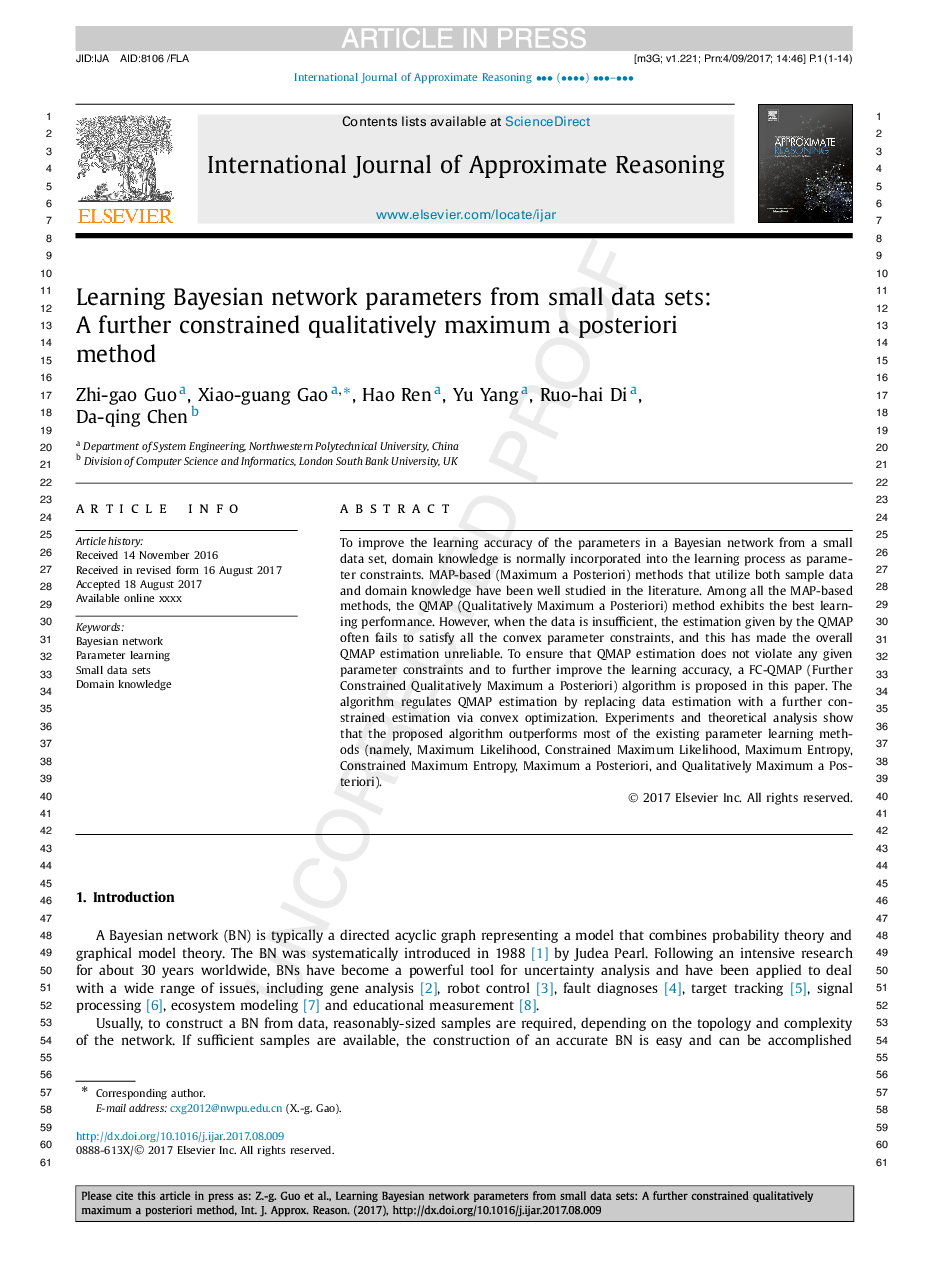| Article ID | Journal | Published Year | Pages | File Type |
|---|---|---|---|---|
| 4945187 | International Journal of Approximate Reasoning | 2017 | 14 Pages |
Abstract
To improve the learning accuracy of the parameters in a Bayesian network from a small data set, domain knowledge is normally incorporated into the learning process as parameter constraints. MAP-based (Maximum a Posteriori) methods that utilize both sample data and domain knowledge have been well studied in the literature. Among all the MAP-based methods, the QMAP (Qualitatively Maximum a Posteriori) method exhibits the best learning performance. However, when the data is insufficient, the estimation given by the QMAP often fails to satisfy all the convex parameter constraints, and this has made the overall QMAP estimation unreliable. To ensure that QMAP estimation does not violate any given parameter constraints and to further improve the learning accuracy, a FC-QMAP (Further Constrained Qualitatively Maximum a Posteriori) algorithm is proposed in this paper. The algorithm regulates QMAP estimation by replacing data estimation with a further constrained estimation via convex optimization. Experiments and theoretical analysis show that the proposed algorithm outperforms most of the existing parameter learning methods (namely, Maximum Likelihood, Constrained Maximum Likelihood, Maximum Entropy, Constrained Maximum Entropy, Maximum a Posteriori, and Qualitatively Maximum a Posteriori).
Related Topics
Physical Sciences and Engineering
Computer Science
Artificial Intelligence
Authors
Zhi-gao Guo, Xiao-guang Gao, Hao Ren, Yu Yang, Ruo-hai Di, Da-qing Chen,
